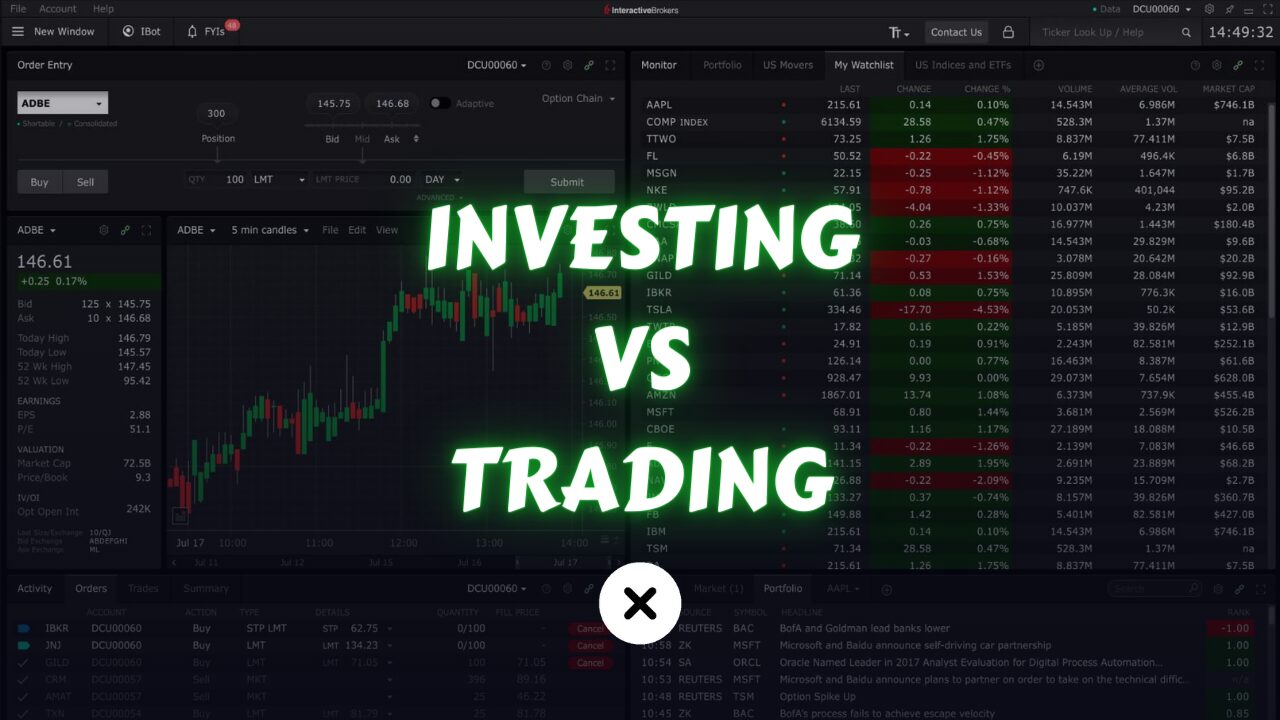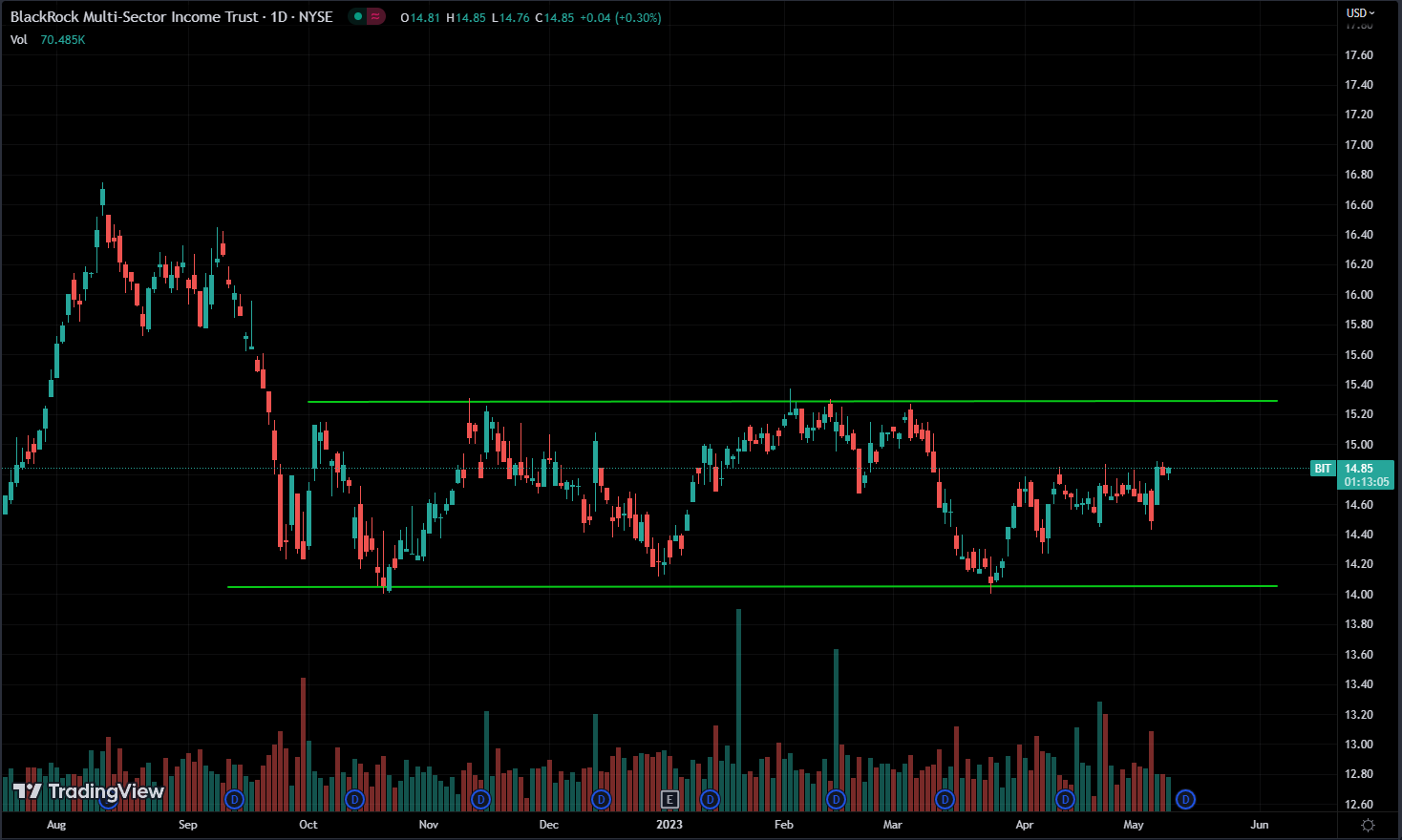
Financial markets are dynamic ecosystems where individuals and institutions trade a vast array of financial instruments, from stocks and bonds to currencies and commodities.
While the markets can seem daunting to newcomers, they offer tremendous opportunities for those who understand how to navigate them effectively.
Making money in financial markets requires a combination of knowledge, discipline, and strategy. In this article, we’ll explore how to make money in financial markets.
What all markets have in common is the capacity to buy or sell assets, so how can we capitalize on this?
In financial markets, there are three ways to generate profits: buying, selling, or maintaining a neutral position.
But we can perform these actions over different periods, which is all about how long you keep your position. The two primary periods are long-term positions and short-term positions. We label the long-term one as “investing” and the short-term as “trading” or “speculation.”
Within the trading category, we can further break it down into things like swing trading and scalping, each representing different periods for holding positions.
What is Investing?
Investing is more of a passive approach.
Buying and holding a portion of stocks, cryptocurrency, mutual funds, bonds, real estate, or other investment instruments for the longest period (Years) to generate capital gains.
In my opinion, investing is a crucial financial activity that everyone should do at some point, as it provides a means of safeguarding hard-earned money against the erosive effects of inflation.
Investing encompasses a vast array of topics and concepts beyond the scope of this post. if you want to learn more about investing you can follow this link.
In simple terms, you do the analysis buy and hold that’s it. you are an investor now.
As the level of risk is lower, the returns associated with investing are generally lower compared to those of trading.
What is Trading?
This is way more active way of approach than investing.
Frequent buying and selling of stocks, commodities, crypto, forex, etc. to generate returns that outperform buy-and-hold investing.
A variety of trading styles exist, including position trading, swing trading, day trading, HFT, and numerous others.
Trading requires significantly more effort than investing, as it is more demanding and entails greater risks, but it also presents the possibility of higher returns. Conversely, investing may be less challenging, but the potential returns are generally lower.
Before attempting either investing or trading, it is important to conduct thorough research and analysis. There are two types of analysis are commonly used:
What is Fundamental Analysis?

Fundamental analysis is evaluating a coin or any asset based on its technology, team, roadmap, political environment, taxes, regulations, etc.
The methodology for conducting fundamental analysis varies depending on the financial instrument being evaluated, such as forex, stocks, or cryptocurrencies, as each one requires a unique approach.
So when do we do fundamental analysis?
For investors who plan to hold onto an asset for an extended period of 10 years or more, it is advisable to conduct a fundamental analysis of the asset before purchasing it. By evaluating the underlying financial and economic factors of the asset, investors can make informed decisions regarding its long-term growth prospects and potential for appreciation in value.
Mostly investors do fundamental analysis rather than traders.
However, it is beneficial to become familiar with both technical and fundamental analysis as they can be useful for both trading and investing strategies. so we will do that in the future.
What is Technical Analysis?

Technical analysis is a method of evaluating financial assets that involves examining past market data, primarily price and volume.
This is mainly done by using charts and indicators.
An indicator is a mathematical calculation based on historical price and/or volume data, which is used to derive more data from the market.
If you are engaging in short-term trades, technical analysis is likely the primary method of analysis that you will use. Why? Let me explain.
Example:
Suppose you are an investor in real estate who is seeking to purchase a property to generate long-term income. when evaluating a property to generate long-term income, there are several factors that you should consider.
These include the quality of the property’s foundation, the insulation used in the walls, the neighborhood in which it is located, and nearby schools, shops, and banks.
These factors are important because they can directly impact the property’s value and potential for generating income over an extended period of time.
By taking these factors into account, you can make an informed decision about whether or not a particular property is a wise investment for your long-term financial goals.
On the other hand, your object is to flip the house, buy it, and sell it quickly for a profit, You may not need to concern yourself with the quality of the neighborhood, nearby amenities, or the overall build quality of the property.
Instead, your focus would be on the recent sales history of similar properties in the area and the current level of demand from buyers and sellers. By understanding these factors, you can make informed decisions about which properties to purchase and how to price them for a quick sale.
It’s the same thing in Trading.
If you are considering a purchase with a long-term horizon of 5 or 10 years, you want to look at the fundamentals of that asset, you want to make sure that they doing something that’s going to grow, and it has value.
If you plan on buying and selling it tomorrow or in a few hours you don’t care too much about fundamentals, you mostly care about how many people are buying and selling. Is there a big buyer or a big seller? how is the supply and demand for that period, so you just look at prices and volume.
But as traders, we do both because It is crucial to stay informed at all times and be prepared for any unexpected economic news or events.
But if you are just investing then technical analysis is not that important to you, but still, you can get some benefits from it.
So what should you be doing trading or investing?
Investing is often recommended as a valuable activity to undertake at some point in one’s life, however, trading is a distinct and more demanding endeavor that requires a passion, time, and a willingness to put in a lot of effort. If you possess these qualities, then trading may be worth exploring as well.